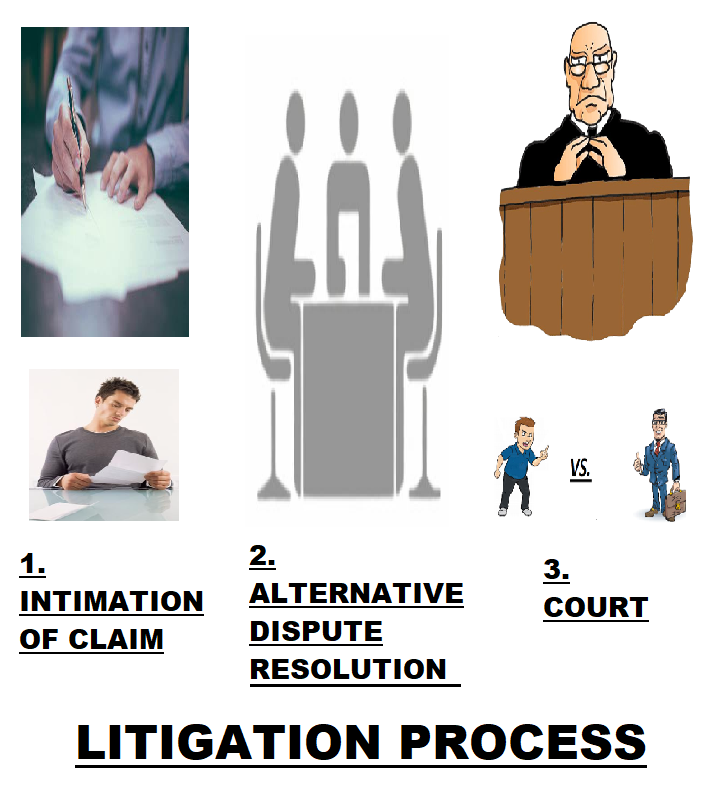Callery v Gray [2002] UKHL 28 (27 June 2002)
Citation:Callery v Gray [2002] UKHL 28 (27 June 2002)
Rule of thumb:If someone has broken the law towards you, do you have to send an intimation of claim letter & undergo alternative dispute resolution or can you just proceed directly to Court? Yes, you do have to send an intimation of claim letter & undergo alternative dispute resolution and the Judge can refuse to hear the claim if this has not been done. And the answer to the second part of the question is no – if you have not followed the pre-Court procedures then you cannot raise the case in Court.
Court held:Where there are pre-action protocols, such as in this case, a professional negligence action, these must be followed or else someone can have a successful action and end up potentially not getting paid expenses.

Ratio-decidendi:
‘Moreover, if general policy considerations are to be brought into account, they tend strongly, in my opinion, against allowing recovery of this ATE premium. One of the main purposes of Lord Woolf's civil justice reforms was to reduce the cost and the complexity of pursuing legal remedies and an important step in that direction was the introduction of pre-action protocols. These set out steps which parties are intended to take before the commencement of litigation so as to confine litigation, as a means of dispute resolution, to cases where the dispute cannot be resolved without it. Under pre-action protocols the claimant must write a letter to the proposed defendant giving the outline of the claim and an opportunity to the defendant to respond. Various key documents, eg a medical report in accident cases, should be supplied to the defendant. This correspondence enables the parties to ascertain what, if anything, is in issue between them and whether, or on what issues, litigation will be necessary. If litigation is shown to be unnecessary, because the defendant admits the claim and the parties can agree terms of settlement, the expense of unnecessary litigation is, by the parties' observance of the pre-action protocol requirements, avoided. And if a claimant fails to observe the requirements of the relevant pre-action protocol and commences litigation prematurely, the court may, even if his claim succeeds, deprive him of costs or order him to pay the defendant's costs (see paras 2.2 and 2.3 of the Protocol Practice Direction: Civil Procedure, 2000, vol 1, C1-002, p 1303). 122. In the present case, Amelans' letter of 4 May 2000 corresponded with the relevant pre-action protocol requirements. So did CGU's response on 19 May. So did their ensuing correspondence which led, by early August, to a settlement agreement. Litigation was not necessary to pursue Mr Callery's claim. The pre-action protocol had served its purpose. In these circumstances the proposition that the defendant should have to pay by way of costs for an item of Mr Callery's expenditure that related exclusively to the litigation that the parties had succeeded in avoiding seems to me inconsistent with the purpose of the pre-action protocol. If during the pre-action protocol period the claimant incurs expenditure for the purpose of litigation that, in the event, never happens, there are, in my opinion, very sound policy reasons, consistent with those that underlie the civil justice reforms, for leaving the claimant to bear the cost of what, in the event, is useless expenditure’, Lord Scott at 121
Warning: This is not professional legal advice. This is not professional legal education advice. Please obtain professional guidance before embarking on any legal course of action. This is just an interpretation of a Judgment by persons of legal insight & varying levels of legal specialism, experience & expertise. Please read the Judgment yourself and form your own interpretation of it with professional assistance.

